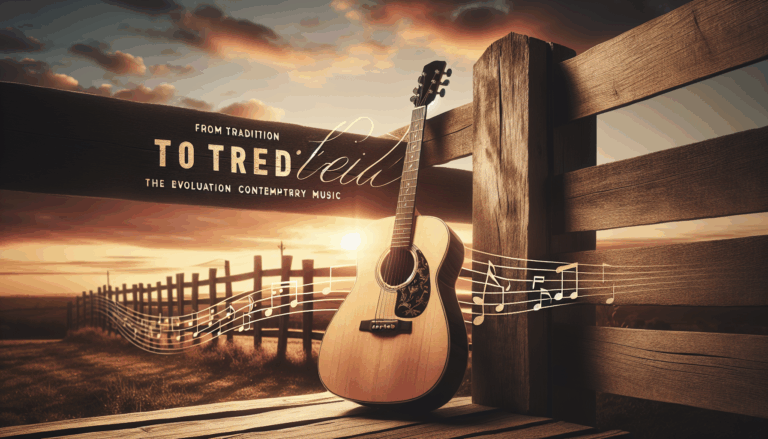The Roots and Rise of Contemporary Country
Country music, with its soulful storytelling and heartfelt melodies, has long been a defining thread in the rich tapestry of American music. Among its many branches, contemporary country stands as a vibrant and evolving genre that captures both the traditions of the past and the pulse of modern sensibilities. Emerging from the deep roots of classic country, contemporary country breathes fresh life into the genre, blending timeless narratives with new sounds, reflecting the experiences of today’s listeners while honoring the legacy of those who came before.
The journey of contemporary country music is a tale woven through decades of cultural shifts and musical experimentation. In the mid-20th century, artists like Hank Williams and Patsy Cline shaped the foundational sound, steeped in raw emotion and simple instrumentation—guitar, fiddle, and pedal steel creating the backdrop for stories about love, loss, and the struggles of everyday life. As American music evolved, so did country, weaving in influences from rock, pop, and later, even hip-hop, giving birth to what we now cherish as contemporary country.
What Defines Contemporary Country?
Contemporary country music is both a continuation and an innovation. It builds on the genre’s hallmark storytelling but often features polished production, catchy hooks, and broader instrumental palettes, including electric guitars and keyboards alongside the traditional banjo and mandolin. The lyrics, while still rooted in life’s heartfelt trials and triumphs, increasingly explore diverse themes—ranging from personal empowerment to social awareness—resonating with a wider audience.
What sets contemporary country apart is its ability to straddle the line between authenticity and accessibility. Artists in this genre craft songs that are radio-friendly yet deeply personal, capable of filling a honky-tonk bar or topping the charts. It invites listeners into narratives that are at once familiar and fresh, echoing the countless scenes of Americana—small-town streets, dusty highways, late-night reflections—framed within modern-day realities.
Icons and Innovators: Key Artists of Contemporary Country
No discussion of contemporary country remains complete without highlighting the artists who have propelled its growth and popularity. Names like Carrie Underwood and Keith Urban have become synonymous with the genre’s broad appeal. Underwood’s powerhouse vocals and emotionally charged ballads recall classic country’s spirit, while Urban’s virtuosic guitar work and cross-genre collaborations have expanded the sonic boundaries of what country music can be.

Blake Shelton emerged as a charismatic figure, blending traditional country twang with modern flair, his songs often encapsulating humor and heartache with equal ease. Meanwhile, Miranda Lambert’s storytelling prowess and unapologetic attitude have brought raw honesty to contemporary country’s forefront, channeling the genre’s spirit of resilience.
Luke Bryan and Maren Morris represent the youthful energy of contemporary country. Bryan’s anthems evoke the joys and pains of everyday life, often with a party anthem feel, whereas Morris brings a soulful, sometimes genre-bending approach, introducing elements of pop and blues into her songwriting. Their popularity on streaming platforms and social media has introduced country music to new generations, keeping the heartbeat of American music vibrant in an ever-changing landscape.
Timeless Tracks and Albums That Define the Genre
Within contemporary country’s rich catalog, certain songs and albums stand tall as touchstones of the genre’s essence. Carrie Underwood’s “Blown Away” album is a masterclass in emotional storytelling, painting vivid pictures of heartbreak and hope set to compelling melodies. Blake Shelton’s “Austin,” with its simple yet profound narrative, remains an enduring favorite, epitomizing country music’s ability to capture poignant moments in everyday life.
Keith Urban’s “Fuse” showcases a daring blend of country roots with pop-rock influences, illustrating the genre’s evolving soundscape. This album’s track “Little Bit of Everything” is a footprint of modern country’s appeal to varied tastes, effortlessly melding catchy rhythms with clever lyrics.
Maren Morris’s “Hero” album broke new ground by addressing personal and societal topics with candid lyrics and innovative production. Songs like “My Church” connect spirituality with country traditions, highlighting the depth contemporary country artists bring to their craft.
The Lasting Impact on American Music and Culture
Contemporary country music is more than a genre; it is a living tradition that continues to shape and reflect American identity. It sustains the storytelling tradition that anchors country music, offering narratives that touch on universal themes—love, loss, hope, and perseverance—while adapting to the rhythms of modern life. By doing so, it bridges generations, creating connections between the era of Hank Williams and today’s streaming audiences.
Moreover, contemporary country music has played a pivotal role in redefining the boundaries of American music, influencing and being influenced by pop culture. Its artists have brought country music to global stages, fostering a worldwide appreciation for its distinctive blend of storytelling and melody. The emotional Honesty in these songs offers comfort and companionship, forging bonds that transcend geography and background.
In many ways, contemporary country embodies the very heart of American music—rooted in tradition, yet forever growing, telling the stories that define us in songs that linger long after the last note fades. It reminds us that country music is not just a genre, but a shared experience, a musical home where every listener can find a piece of their own story.